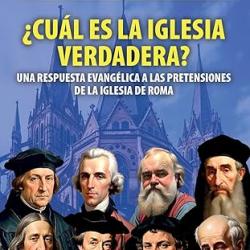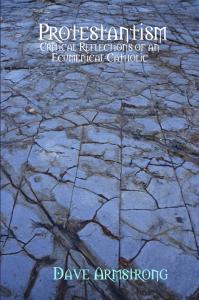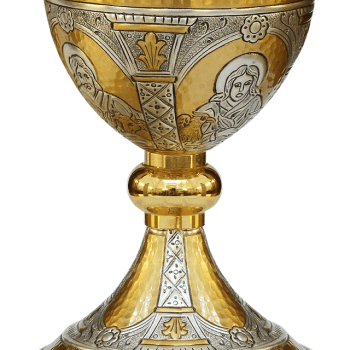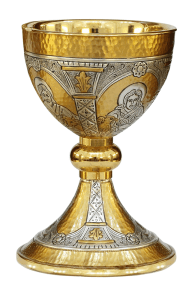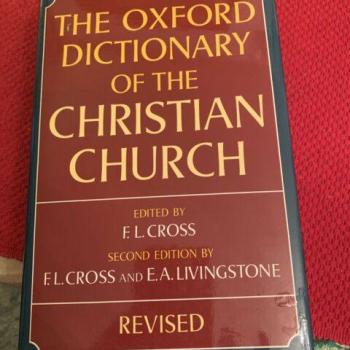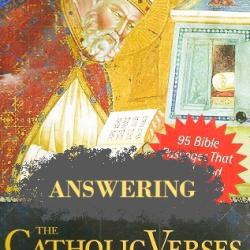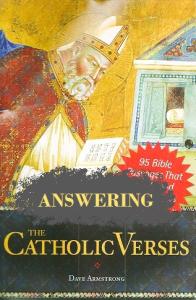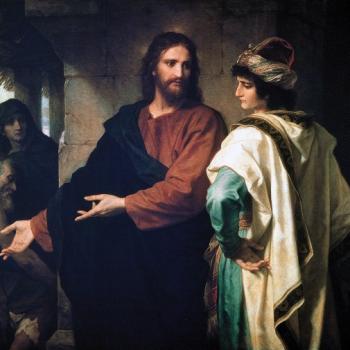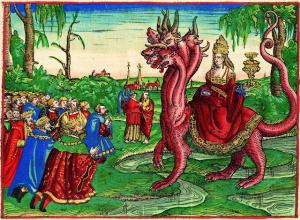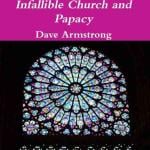Why I Cited Protestant Scholars Who Believe that Jesus Thought Peter Himself was the “Rock”
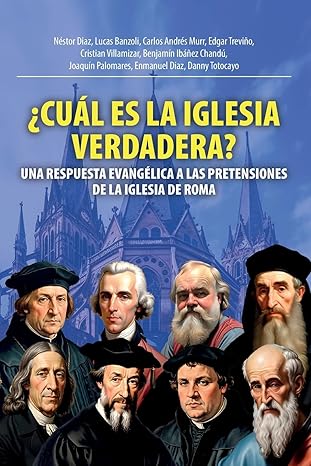
This is a reply to a portion of a book written in Spanish, entitled,
In chapter 3, “The Papacy and the History of the Church”, by Edgar Treviño, one of my statements was cited and its meaning and intent completely misrepresented in an embarrassing and inexcusable way, in a subsection entitled, “Do Protestant Scholars Support the Papacy in Matthew 16:18?” The author’s goal (typical of anti-Catholics’ modus operandi) was to make me — and the point I was making here — look ridiculous. In order to try to accomplish that, he had to create a caricature of my actual argument. In actuality, he has proven himself to be ridiculous, and manifested to one and all his inability to comprehend rather simple logic and straightforward reasoning.
Treviño’s words will be in blue. I used Google Translate to render the Spanish into English (excepting the citation from my book).
*****
I will concern myself in this article only with the portion that cited me and misrepresented my argument. It’s a case study in either 1) deliberate dishonesty in anti-Catholic argumentation, or 2) extraordinary incompetence and shoddy so-called “reasoning” and research ability in anti-Catholic polemics. Take your pick.
Roman Catholic apologist Dave Armstrong wrote:
Many prominent Protestant scholars and exegetes have agreed that Peter is the “rock” in Matthew 16:18; these include Alford, Broadus, Keil, Kittel, Cullmann, Albright, Robert McAfee Brown, and, most recently, respected Evangelical commentators R. T. France and D. A. Carson. (citation from my 2003 book, A Biblical Defense of Catholicism, p. 219; see also the entire chapter, available online for free, with the full documentation of the sources)
He did accurately cite me (thank you for small favors). But it’s his misinterpretation of my argument that is problematic and ludicrous.
And what good does it do Armstrong that these Protestant scholars interpret Peter as the “rock” of Matthew 16:18? It does him no good, because they do not believe in the papacy, in fact, they say that even if Peter was the “rock” in Matthew 16:18, that is no basis for the papacy.
It’s irrelevant whether they believe in the papacy or not (of course they don’t: being Protestant), because that isn’t why I cited them. I did precisely because they do not believe in the papacy. It’s the argumentative technique of the “hostile witness.” In other words, the reasoning runs as follows: “even several reputable, scholarly Protestants who disbelieve in the papacy agree with a key premise in the Catholic defense of Petrine primacy and the papacy that developed from it: i.e., that Jesus regarded Peter as “the Rock” in Matthew 16:18, not merely Peter’s confession or He (Christ) Himself” (the two standard views of almost all Protestants these past 500 years).
If one cites a dialogical / theological opponent in agreement regarding one important premise for a notion that he or she disagrees with, that is a very strong argument, with much force. If a Catholic cites other Catholics, the Protestant simply dismisses them as biased and partisan. But if their own Protestant scholars are cited, then they must stand up and take notice, if they are honest and seekers of truth. Protestant scholars, in other words, can’t be accused of partisan bias when they agree with some Catholic premise (as opposed to a Catholic belief).
Protestant apologists use the same technique all the time. I’ve personally observed this thousands of times, in my 34 years of doing Catholic apologetics. They will cite Catholic scholars in order to oppose some Catholic doctrine or premise of same. But Protestants usually cite liberal, nominal Catholic scholars, who barely even accept all that the Catholic Church teaches. I don’t have to do that. I cited solid, respectable Protestant scholars.
I searched the term, “Erudito católico romano” [Roman Catholic scholar”] in the book, and it appeared 14 times. The various co-authors cited Catholics such as Eamon Duffy, Robert B. Eno, Xabier Pikaza, Pierre Batiffol, [theological liberal] Raymond E. Brown (2), [theological liberal] Richard McBrien, Antonio Royo Marín, Yves Congar, and [orthodox] Ludwig Ott (3).
This is exactly the same sort of reasoning that I utilized. Yet when I do it, Treviño claims that it is irrelevant and ineffective. Well, then, when his co-authors do the same thing, it must be irrelevant and ineffective for them, too. Since he surely would reject that, his clueless pseudo-argument against me collapses, by reductio ad absurdum (there’s another form of argument for you), since his own colleagues use the same method.
Armstrong is not proving the papacy in Matthew 16:18 by quoting Protestant scholars.
I never claimed that I was doing that or seeking to do it. I agree! In my book, in the passage cited, I stated, “Many prominent Protestant scholars and exegetes have agreed that Peter is the “rock” in Matthew 16:18 . . .” I did not state, or argue, “Many prominent Protestant scholars and exegetes have agreed that the papacy is proven by Matthew 16:18.” Reading Treviño, one would think that I had stated the latter, not the former. But I was arguing that important Protestant scholars agreed with one particular argument for the papacy that Catholics have made for many centuries.
The first thing one learns in debate club in middle school is to understand one’s debate opponent’s views at least as well as they do themselves. Treviño miserably fails that test. He has no idea what I was even contending for, and seems unfamiliar with a type of argumentation that is very commonly used, and was in the very book he was part of: about a dozen times.
“Please Hit ‘Subscribe’”! If you have received benefit from this or any of my other 4,800+ articles, please follow my blog by signing up (with your email address) on the sidebar to the right (you may have to scroll down a bit), above where there is an icon bar, “Sign Me Up!”: to receive notice when I post a new blog article. This is the equivalent of subscribing to a YouTube channel. My blog was rated #1 for Christian sites by leading AI tool, ChatGPT: endorsed by influential Protestant blogger Adrian Warnock. Please also consider following me on Twitter / X and purchasing one or more of my 55 books. All of this helps me get more exposure, and (however little!) more income for my full-time apologetics work. Thanks so much and happy reading!
***
On the contrary, Dave Armstrong also makes the same mistake as other Catholic apologists, by quoting half-baked Protestant scholars who say that Peter is the “rock” in Matthew 16:18.
This is where Treviño makes an even bigger fool of himself. He not only astonishingly misrepresents what I was arguing, but then goes on to insult the Protestant scholars that I cited; thus proving how unaware he is even of his own broad theological heritage and Protestant tradition. I was already familiar with most of them as a Protestant (prior to 1990). Let me do a brief survey of them, for his sake, and that of any other Protestants who believe that I cited “half-baked” Protestant scholars to make my argument (information mostly from Wikipedia articles):
Henry Alford (1810-1871) was an English Anglican churchman, theologian, textual critic, scholar, poet, hymnodist, and writer. His chief fame rests on his monumental edition of the New Testament in Greek (8 vols.), written from 1841 to 1861 [see volumes one, two, three, four]. In this work he first brought before English students a careful collation of the readings of the chief manuscripts and the researches of the ripest continental scholarship of his day. Philological rather than theological in character, it marked an epochal change from the old homiletic commentary, and through more recent research, patristic and papyral, largely changed the method of New Testament exegesis. See many of his other works as well.
John Albert Broadus (1827-1895) was an American Baptist pastor and President of the Southern Baptist Theological Seminary. His many writings include Commentary on the Gospel of Matthew, A Harmony of the Gospels in the Revised Version, and Commentary on the Gospel of Mark (see many more). Charles Spurgeon called Broadus the “greatest of living preachers.” Church historian Albert Henry Newman called Broadus “perhaps the greatest preacher the Baptists have produced.”
Carl Friedrich Keil (1807-1888) was a conservative German Lutheran Old Testament commentator. Keil was appointed to the theological faculty of Dorpat in Estonia where he taught Bible, New Testament exegesis, and Oriental languages. Keil was a conservative critic who reacted strongly against the scientific biblical criticism of his day. He strongly supported Mosaic authorship of the Pentateuch. He maintained the validity of the historico-critical investigation of the Bible only if it proved the existence of New Testament revelation in the Scriptures. To this aim he edited (with Franz Delitzsch) his principal work, a commentary on the Bible, Biblical Commentary on the Old Testament, 5 vols., 1872–77; available online). The work remains his most enduring contribution to biblical studies.
Gerhard Kittel (1888-1948), Lutheran author, with Gerhard Friedrich, of the Theological Dictionary of the New Testament (ten volumes, and also a one-volume edition; my own copy sits a foot away from me as I write). It’s considered by many scholars to be the best New Testament dictionary ever compiled. Mediating between ordinary lexicography and the specific task of exposition, TDNT treats more than 2,300 theologically significant New Testament words, including the more important prepositions and numbers as well as many proper names from the Old Testament.
Oscar Cullmann (1902-1999) was a French Lutheran theologian and ecumenist. In 1930, he was awarded a full professorship of New Testament. From 1936, he also taught the history of the early church. In 1938, he began teaching both subjects at Basel Reformed Seminary. In 1948 Cullmann accepted a position teaching theology in Paris at the Sorbonne while he continued at Basel. See his many writings.
William Foxwell Albright (1891-1971), a Methodist, was an American archaeologist, biblical scholar, and philologist. He is considered “one of the twentieth century’s most influential American biblical scholars”, having become known to the public in 1948 for his role in the authentication of the Dead Sea Scrolls. Albright was a leading theorist and practitioner of biblical archaeology, and is regarded as the founder of the biblical archaeology movement. He served as the W. W. Spence Professor of Semitic Languages at Johns Hopkins University from 1930 to 1958 and was the Director of the American School of Oriental Research in Jerusalem for several terms between 1922 and 1936. Albright’s work has had a lasting impact on the understanding of ancient Near Eastern history and the historicity of the Bible. See his many works.
Robert McAfee Brown (1920–2001) was an American Presbyterian minister, theologian, and ecumenist. He studied at the University of Oxford before completing a doctorate in the philosophy of religion at Columbia University in 1951. He was appointed as Professor of Religion at Stanford University in 1962. See his many books.
Richard Thomas (R. T.) France (1938–2012) was a New Testament scholar and evangelical Anglican cleric. He was Principal of Wycliffe Hall, Oxford, from 1989 to 1995. He also worked for the London School of Theology. He was known as one of the best exegetes and commentators on the New Testament. See his many commentaries.
Donald Arthur (D. A.) Carson (born December 21, 1946) is a Canadian evangelical theologian. He is a Distinguished Emeritus Professor of New Testament at Trinity Evangelical Divinity School and president and co-founder of the Gospel Coalition. He has written or edited about sixty books (or more) and served as president of the Evangelical Theological Society in 2022. Carson has been described as doing “the most seminal New Testament work by contemporary evangelicals” and as “one of the last great Renaissance men in evangelical biblical scholarship.” He has written on a wide range of topics including New Testament, hermeneutics, biblical theology, the Greek New Testament, the use of the Old Testament in the New, and more. He obtained a Doctor of Philosophy in New Testament from the University of Cambridge in 1975. He has authored and edited over 60 books.
And these were just scholars that I had mentioned in this regard 28 years ago, in my first book, completed in 1996. Since then, I have found at least twenty more prominent Protestant exegetes and reference works (making it a total of 29) who also held that Peter himself (not his confession) was the Rock:
New Bible Dictionary, Word Studies in the New Testament (Marvin Vincent), Wycliffe Bible Commentary, New Bible Commentary, Eerdmans Bible Commentary, Herman N. Ridderbos, Albert Barnes, David Hill, M. Eugene Boring, William Hendriksen, Peake’s Commentary, Gerhard Maier, J. Knox Chamblin, Craig L. Blomberg, William E. McCumber, Donald A. Hagner, Philip Schaff, Lange’s Commentary on the Holy Scriptures: The Gospel According to Matthew, vol. 8, The Layman’s Bible Commentary, Encyclopaedia Britannica (1985; article by D. W. O’Connor, a Protestant), and Richard Baumann. For much more on this, see my article, Peter the Rock: Only a Catholic View? (vs. James White) [Includes Documentation of 14 Church Fathers Who Thought Peter Was the Rock] [5-11-24].
Now, if Treviño — in his infinite knowledge of Protestant scholarship — wishes to contend that all of these scholars and reputable reference works are also “half-baked” he is free, of course, to do so, but it will obliterate any shred of intellectual credibility he still has left. I think he should admit that he has no idea what he is talking about and instantly retire from pretending to engage in Protestant apologetics, in order to save himself from future embarrassing refutations such as this one. I feel bad for my Protestant brothers and sisters! Treviño — like anti-Catholics generally speaking — doesn’t represent the thought of serious Protestant exegetes and scholars.
Armstrong does not cite the conclusions of the Protestant scholars he cites, and they are very important, because their conclusions contradict what Armstrong believes about Matthew 16:18 and the papacy, and the interpretation of Peter being the “rock” according to what these Protestant scholars say about Matthew 16:18. These Protestant scholars do not connect Matthew 16:18 with the belief of the papacy (Armstrong does).
As explained, this is completely irrelevant to my argument (what is known in logic as a non sequitur). It’s understood and assumed going in that they reject the papacy and papal ecclesiology, by definition (as Protestants).
The case for the papacy is a cumulative argument. As such, showing that the consensus today is that Peter was the Rock is one aspect of that. It isn’t the whole ball of wax. We also show what was meant by having the keys of the kingdom, etc. We support our positions one-by-one and then conclude that the evidence is strong. (2-26-02)*
It is a “cumulative” argument. One doesn’t expect that all individual pieces of such an argument are “airtight” or conclusive in and of themselves, in isolation, by the nature of the case. I certainly don’t do so. . . . all the various evidences become strong only as they are considered together (like many weak strands of twine which become a strong rope when they are woven together). . . . all the various evidences become strong only as they are considered together (like many weak strands of twine which become a strong rope when they are woven together). (3-14-02)
Photo credit: cover of the Spanish-language book, from its Amazon page. Copyright by ibukku, LLC (June 5, 2024).
Summary: Edgar Treviño, in Which Is the True Church?: An Evangelical Response to the Claims of the Church of Rome (2024), utterly misrepresents my argument about Peter the Rock.


